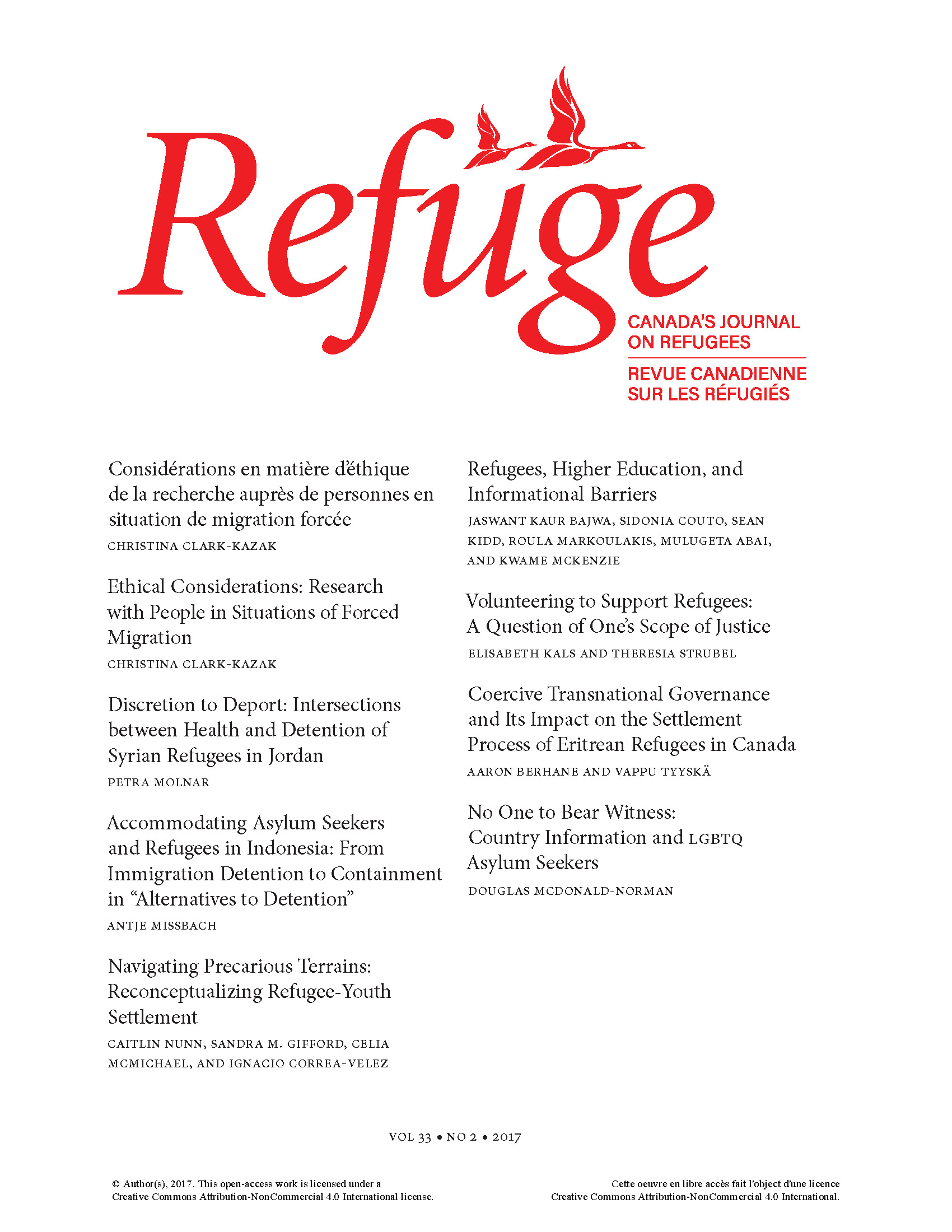Considérations en matière d’éthique de la recherche auprès de personnes en situation de migration forcée
DOI:
https://doi.org/10.7202/1043058arKeywords:
migration forcée, éthique de la rechercheAbstract
Research can contribute to a better understanding of the experience of people in situations of forced migration and thus support the development of relevant policies and programs; however this research can also constrain and cause prejudices for the respondents [1] looking. In forced migration situations, the stakes are high due to the precarious legal status of respondents, unequal power relations, the wide reach of anti-terrorism laws and the criminalization of migration.In response to this situation, the Canadian Council for Refugees, the Center for Refugee Studies at York University and the Canadian Association for Refugee and Forced Migration Studies (ACERMF) have worked together to develop specific ethical considerations for research with people in forced migration situations. These considerations complement existing ethical principles. They are of interest to all those who participate in the collection of information - in an academic or community setting - and to those who take part in the research. This document presents our guiding principles as well as the ethical concepts of free and informed consent, privacy and cost-benefit analysis.
[1] This document recognizes that power relations are inseparable from the process of facilitating meaningful participation; the term respondent here refers to people who provide information in the context of the research. Some ethics documents use the term human subject .
In this document, the masculine (singular or plural) is used as a representative of all genders, for the sole purpose of lightening the text.
Metrics
Downloads
Published
How to Cite
Issue
Section
License
Copyright (c) 2017 Christina Clark-Kazak

This work is licensed under a Creative Commons Attribution-NonCommercial 4.0 International License.
Refuge authors retain the copyright over their work, and license it to the general public under the Creative Commons Attribution-Non Commercial License International (CC BY-NC 4.0). This license allows for non-commercial use, reproduction and adaption of the material in any medium or format, with proper attribution. For general information on Creative Commons licences, visit the Creative Commons site. For the CC BY-NC 4.0 license, review the human readable summary.







